Interior designers and interior decorators are often conflated, but both professions are different in key ways. Each one has a specific job description and function, and so it is important to understand that difference for your renovation project's success. To make an informed choice, it’s best to look over all of these helpful facts so that you can better understand what interior designers and interior decorators are all about. This way you can not only enhance your knowledge of the home improvement industry, but you can also decide which professional will suit your needs best.

An interior decorator has an intuitive understanding of form and style.
Interior decorating is about planning the layout of an interior space so that it is stylish and aesthetically pleasing. Interior decorators will work with furniture, rugs, wall coverings, and decorative items to make a space that is cozy and beautiful. Interior decorators don’t work with architects and they do not alter the structure of interior space. Instead, their job is to make the most of what is already in the interior to make the space look as good as possible and avoid decorating mistakes.
Credentials
Interior decoration technically does not have formal certification requirements. There are, however, plenty of courses available that help interior decorators hone their skills. Generally speaking, these courses teach decorators how to work with room layouts, furniture styles, and fabrics to visually improve interior space.
There are even certificates that interior decorators can attain, such as the CID, or Certified Interior Decorators certificate. CID is an organization specifically geared toward training better interior decorators.
Education
Many interior decorators have college degrees in related fields such as architecture or the arts, but there are no requirements when it comes to education. Because interior decorators do not work with architecture or structural planning, their skill set does not need to be as technical as that of an interior designer or a licensed contractor. The expertise of an interior decorator is more abstract because their field, broadly speaking, is aesthetics. Their job is therefore to know what looks good and how to bring those styles into your home without making major structural alterations.
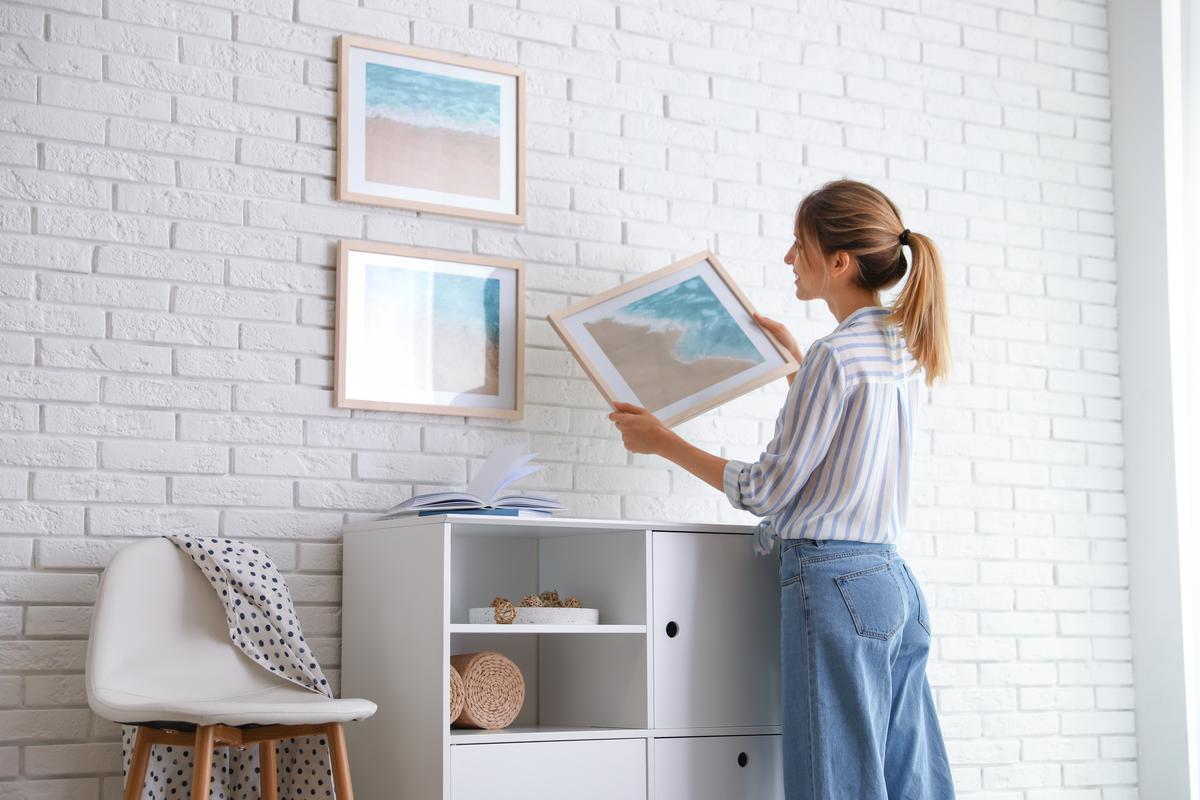
Interior decorating is about having a good eye for colors, furniture designs, and room layouts.
Their Job
A good home interior decorator will have an excellent intuition for which colors, styles, and designs go together best. Most importantly, they should also be good at communication since a big part of their job involves working with clients to realize a design that is closest to the client's vision. They will also know how to bring that vision into reality. Home interior decorators can either work with what is already in your interior or they can even help you to buy new interior decor to spruce things up.
Who They Work With
Although interior decorators typically do not work with interior designers, there are exceptions to this rule. Sometimes the two can work together so that every aspect of the space comes together seamlessly, as far as layout and decor are concerned. Home interior decorators often work with industry professionals such as furniture makers and upholsterers. This way, they work to get the best quality of everything they buy to reimagine your interior decor.
Key Factors of Interior Designers

Interior designers work on the technical side of things and therefore know a lot more about architecture and building codes.
Interior design is a profession and as such, it requires formal training. For most interior designers that means two to four years of education at a technical institute. Interior home designers have a multi-faceted profession that involves technical skills and creative ability.
Home interior designers have the task of studying a client’s living space and developing an interior design. The overarching goal of interior designers is to build or renovate a space that meets the needs of the client all under budget.
Credentials
Interior designers are legally required in some states to obtain a license or registration. Some states also require additional certification, such as the NCIDQ (National Council for Interior Design and Qualification) certificate. An interior home designer must pass the NCIDQ exam to obtain this certificate proving that they have a high level of proficiency in interior design principles. This is not a requirement in all states, but many interior designers still elect to take the test anyway since it gives them an advantage over competitors.
Education
Before they can even become practicing professionals, interior designers must undergo formal training in a two-year or four-year program at an accredited vocational institution. These programs include courses in Computer Assisted Design (CAD), space planning, furniture design, architecture, and color/fabric choice.
Many interior home designers also apprentice at a design firm to gain on-the-job experience before they establish their own company or join a larger firm. Obtaining real-life experience is a huge asset for interior designers as it gives them important insight that isn’t always possible to obtain from a classroom.
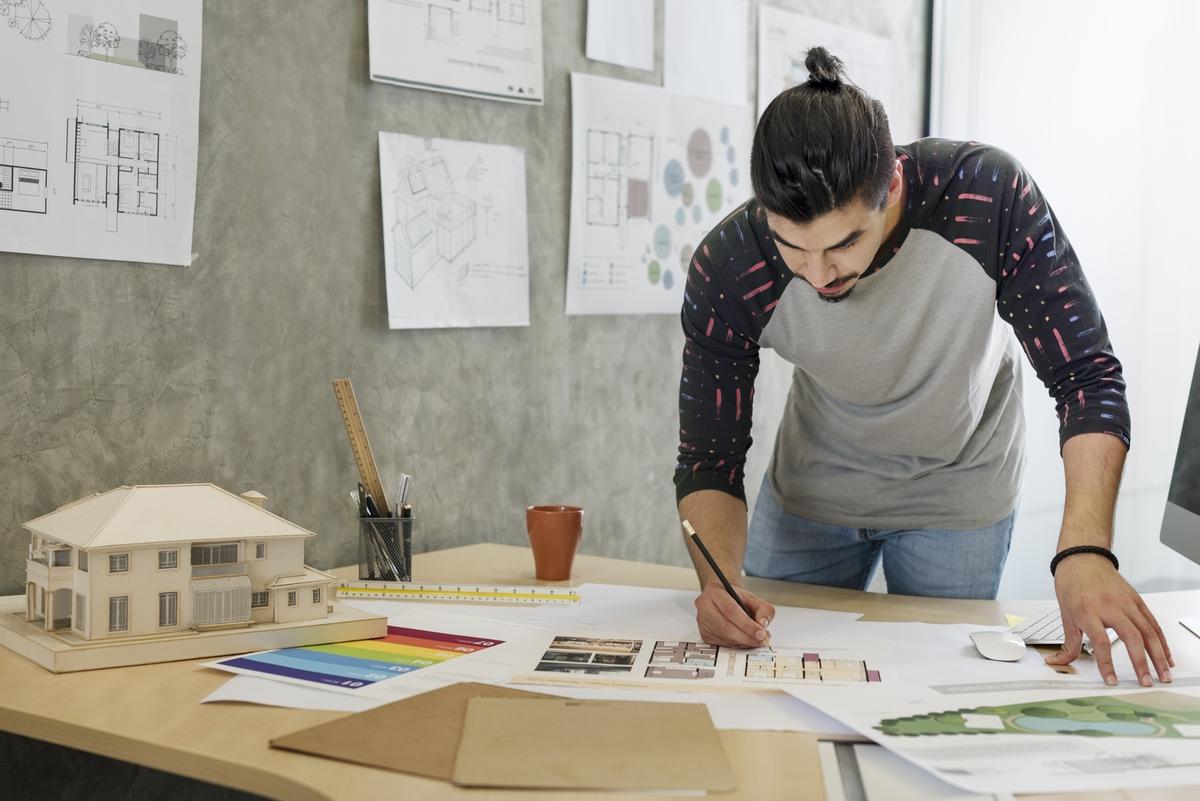
Interior designers often obtain on-the-job experience as part of their education and training.
Their Job
As you can see, home interior designers have to go through a bevy of training and certification before they are allowed to work on your home. This means that a big part of an interior designer’s job involves being thorough. Before they even start working on your home, an interior designer will research and analyze their client's needs and wants.
Their job also involves drafting extensive plans and schematics to bring the client's vision to life. Because they have to work with other professionals, adhere to building codes, and keep up to date with regulations, home interior designers must have strong problem-solving skills.
Who They Work With
Interior designers often work closely with architects, licensed contractors, and other professionals so that your renovation design is executed without any snags. The other main person they work with regularly is you, the client. All good interior designers will regularly liaise with their clients so that each step of the project is on track.
Which One Should You Hire?
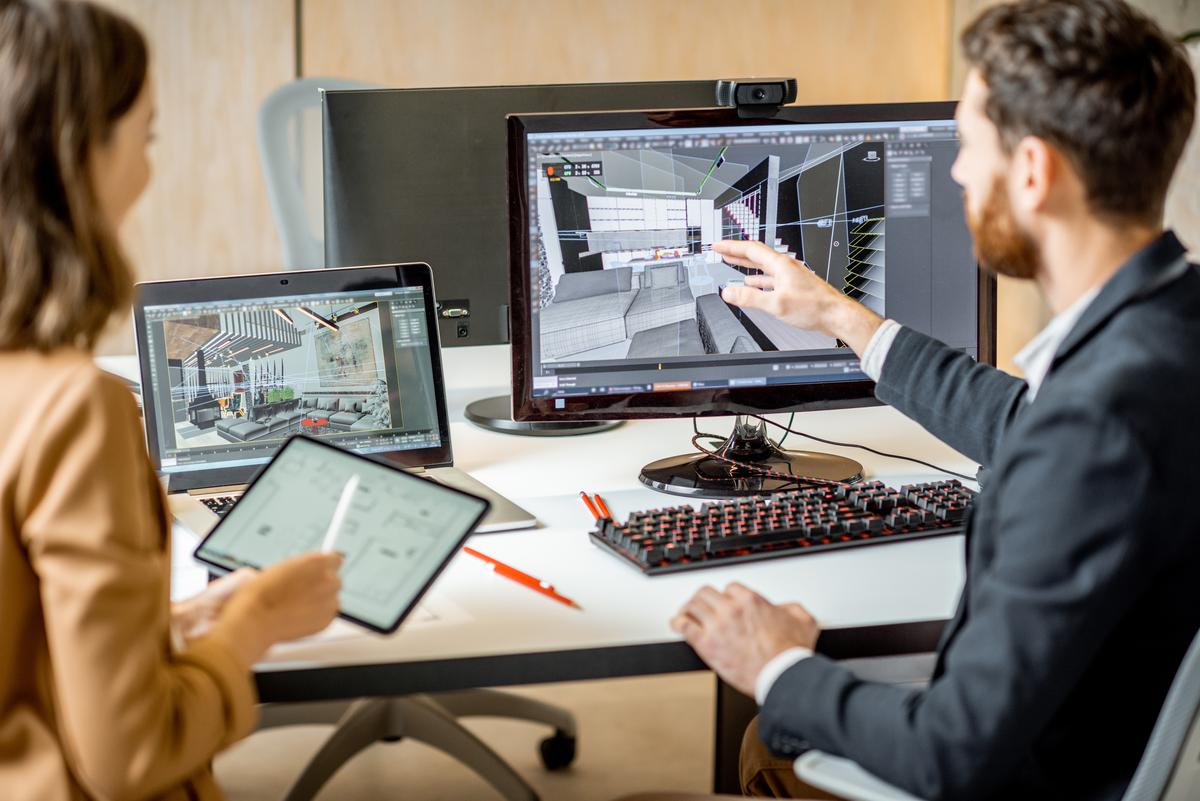
The portfolio of the expert you are considering is an important detail.
So now that you know all the differences between home decorators and interior designers, you might still be left wondering, “how do I know which will best suit my needs?” Answering this question means understanding your project requirements and which skill set will suit those needs.
Your Project Requirements
Put simply, any project that requires structural changes such as removing walls, changing plumbing or wiring, or redoing interior lighting requires someone with a background in architecture, ergo, a home interior designer. Designers know how to account for all the important details that go into structural changes. Even if your goal is just to make things look better, you’ll still need to make sure all structural changes are up to code, and an interior designer will know exactly how to do that.
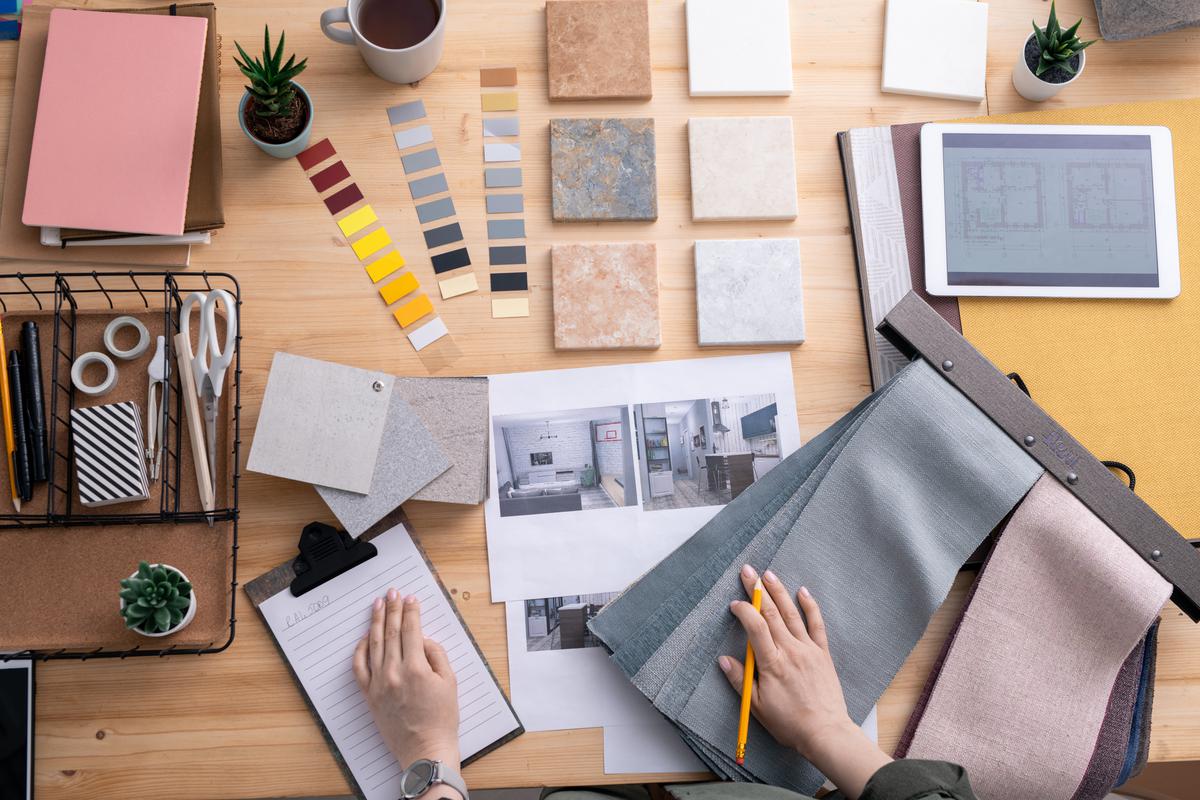
Some interior designers will specialize in the more visual side of the job rather than focusing mainly on building structures.
Alternatively, if all you want to do is just change furniture, drapes, wallpaper, repaint, or pick window treatments, an interior decorator is the better choice. Experienced home interior decorators know what works well together and also know where to get the best quality furniture and decor to make your home look well put together.
The Skill Set of the Decorator or Designer
To help decide which expert is best for you, we recommend looking into the specific skill set of the expert you are considering hiring. Sure, an interior designer might not be necessary for just rearranging decor or furniture, but some interior home designers are specialized in visual storytelling. This means that although they might not do any structural work, they would be a good pick if you need someone with a good eye for detail and aesthetic. Conversely, there are also plenty of interior decorators who have a lot of experience working with contractors and builders, much as an interior designer would.
Bottom Line

The bottom line is to make sure the professional you end up choosing can fulfill your needs within your budgetary requirements.
The best recipe for finding the best person for your project is to spend a lot of time thinking about what you want and do a lot of research. Any client who has a good idea of what their needs and budget are will have a much easier time finding someone to fit those requirements - whether they be an interior designer or interior decorator. Always check the portfolio of the professional you want to hire and get references if you can.

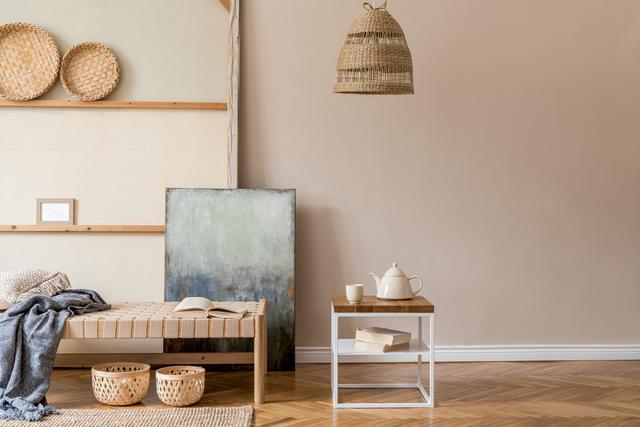
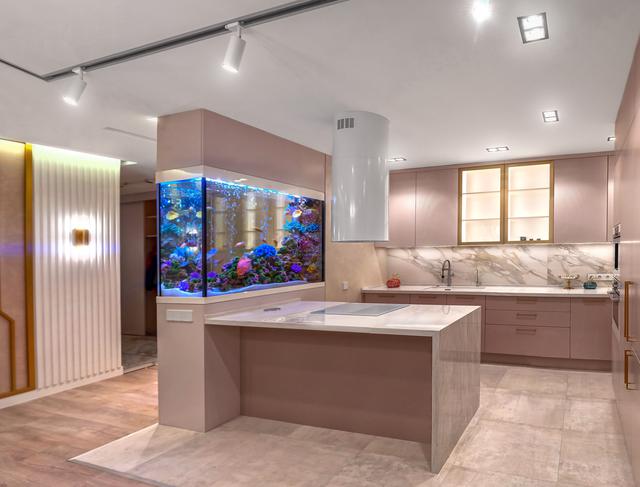
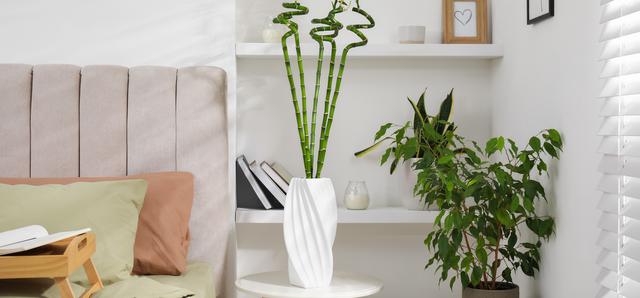
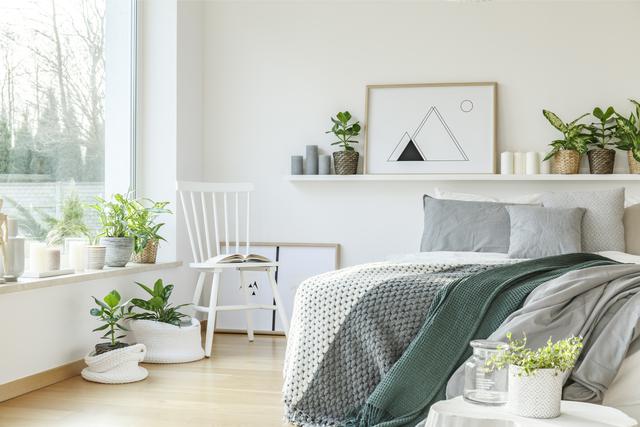
comments